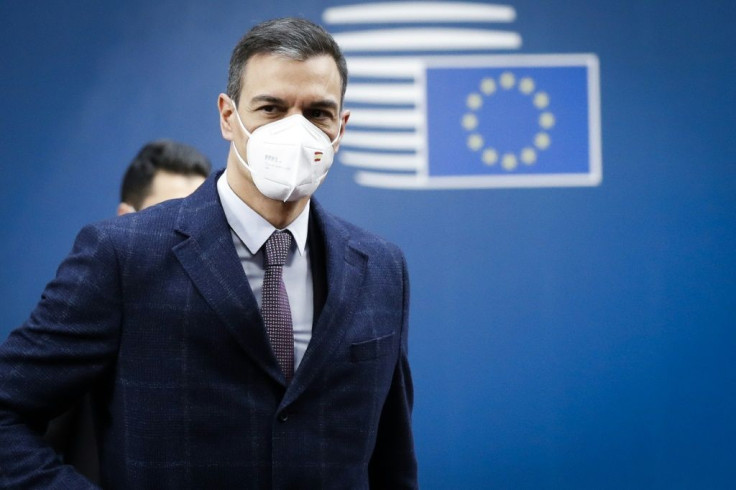Spanish PM Prepares Ground To Pardon Catalan Separatists
Spain's prime minister on Wednesday appeared to be gearing up to grant a pardon to Catalan separatists convicted over a failed 2017 independence bid, a risky move for his minority leftist government which is facing a resurgent right.
"There is a time for punishment and a time for harmony," Socialist Prime Minister Sanchez said during a debate in parliament where the possibility of a pardon angered right-wing lawmakers.
"This government will make its decision according to what promotes coexistence between Spaniards."
Spain's Supreme Court also weighed in, saying it was "against the granting of any form of pardon, total or partial" to 12 Catalan separatists found guilty for their role in an illegal secession referendum and a short-lived declaration of independence.
In October 2019, the Supreme Court sentenced nine of them -- seven senior politicians and two civil society leaders -- to jail terms of between nine and 13 years, while the other three were fined.
The court argued Wednesday that it had respected "the principle of proportionality" in its sentencing and saw "no evidence or indication of remorse" from the prisoners to justify any such pardon.
Among the jailed leaders is Oriol Junqueras, the president of leftist Catalan separatist party ERC.
Sanchez's minority government partially relies on the support of the ERC in the national parliament to pass legislation.
"The move is very, very risky and it could go wrong," Oriol Bartomeus, politics professor at the Autonomous University of Barcelona, told AFP when asked about a possible pardon.
Pardoning the separatists is essential "to resolve the issue of Catalonia" and will favour "the stability of the government in parliament," he said.
But it "generates a lot of noise" and will be used by the right to "mobilise" its voters against the government, he added.
A pardon has been discussed by the government for months but it returned to the front burner on Tuesday after Pere Aragones of the ERC was sworn in as the new head of the government of Catalonia.
Asked that day if his government would issue a pardon, Sanchez said it would take into account values like "dialogue" and "understanding" instead of "revenge and vengeance".
The leader of the main opposition conservative Popular Party (PP), Pablo Casado, retorted on Wednesday that "defending national unity is not vengeance".
He has vowed to challenge any pardon in the courts while far-right party Vox has said it will stage street protests against the move.

The debate comes as the support for the PP has surged ahead of the Socialists in opinion polls since the party scored a big win in a regional election in Madrid earlier this month.
The PP and Vox together would win an absolute majority in parliament if a general election were held now, according to a poll published Sunday in conservative daily newspaper ABC.
The possibility of a pardon was met without enthusiasm by Catalan separatists.
"Our proposal is an amnesty but... we will not oppose any measure which alleviates the pain of the prisoners," Aragones said during his first news conference as head of the Catalan government.
"We expect a fair solution and as soon as possible," added Aragones whose ERC governs in coalition with the more hardline Together for Catalonia (JxC) party which headed the previous Catalan government.
Unlike a pardon, an amnesty would also affect Catalan leaders who fled Spain after the failed 2017 independence bid such as Carles Puigdemont, the former head of the Catalan government of the JxC.
The ERC has called for a more moderate approach than JxC to advance the cause of Catalan independence.
It backs dialogue with Spain's central government and wants Madrid's backing for an independence referendum.
Sanchez's government has rejected both the amnesty and the referendum but it agrees on the need to restart dialogue with the Catalan government.
dbh/ds/har
© Copyright AFP {{Year}}. All rights reserved.





















